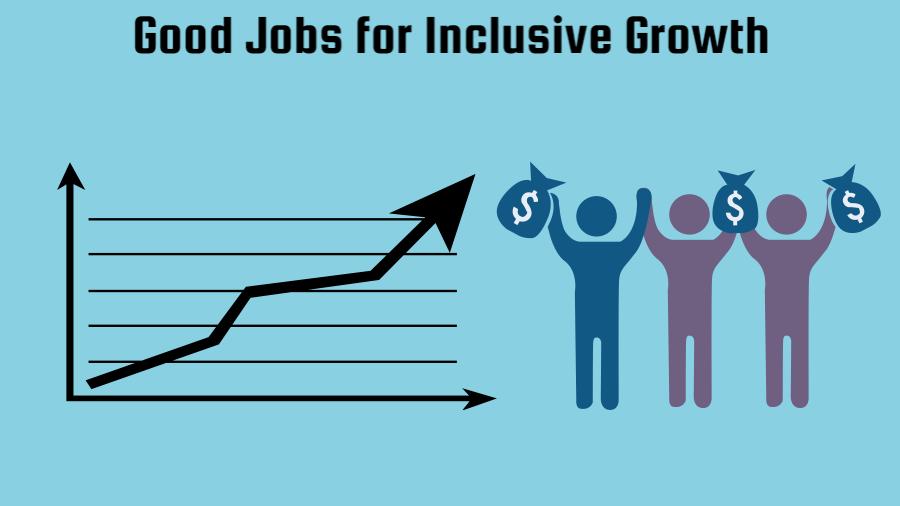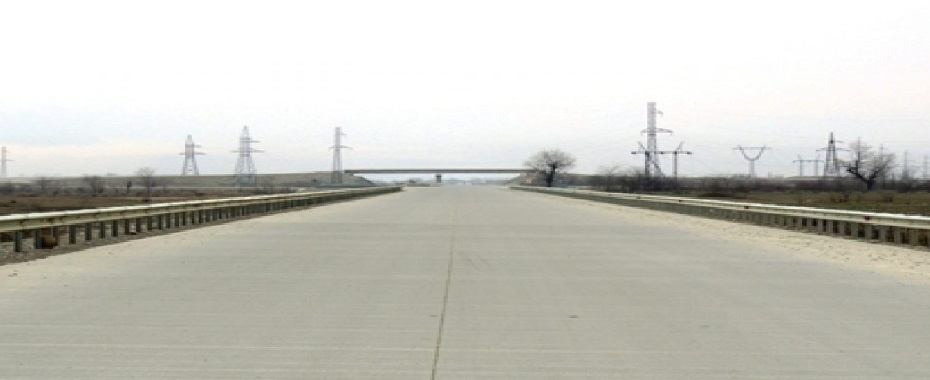Macroeconomic Projects


Development of Indirect Economic Multipliers for Georgian Economy, including multipliers for revenue generation, job creation and investments.
Read more
The project is aimed at providing a useful basis for the development of the new Cooperation Programme on how to best address the inclusion of vulnerable social groups. The study will help in the formation of decisions over any needed program adjustments and target groups in order to achieve better outcomes of the future Cooperation Program.
Read more
The ISET-PI team provided training in macroeconomic forecasting and tools for independent policy research to the staff of the Ministry of Economic Development and Trade (MoEDT) of Tajikistan.
Read more
This paper is the first to create a comprehensive mapping of the Global and Regional Value Chain participation for Georgia and other CAREC region countries using the Eora Multi-Regional Input-Output Model (MRIO). The paper was written with support from the CAREC Think Tank Network Research Grant.
Read more
To Conduct Regulatory Impact Assessments and Gender Impact Assessments for Women’s Economic Empowerment in Georgia.
Read more
The study analyzes pecuniary economic costs and benefits associated with new policies on maternity, paternity, and parental leave in Georgia, using a state-of-the-art methodology utilized in EU member countries.
Read more
The unique cross-country study compares interest rates for a set of retail credit products in Georgia and select transition economies. The results suggest that the cost of credit in Georgia is lower than in the CIS countries which have been covered by the survey (namely, Kazakhstan, Russia, Ukraine and in many cases Armenia) while it’s somewhat higher compared to a cohort of Central and Eastern European Countries (CEE) - this is true especially for local currency loans. However, when adjusted for cost of funds, interest rates on retail products in Georgia come out to be among the lowest, even compared to the CEE countries.
Read more
This research aims to explain how Georgia’s economic development in the past 12-15 years took place despite the absence of rural-urban migration, defying the predictions of the Lewis Model - one of the most influential theories in development economics.
Read more
This project offers an updated review of how the practice of gender-biased sex selection has been evolving in Georgia and explores different aspects influencing sex ratio at birth and the factors leading to son-preference in families.
Read more
Identification of priority sectors on the Georgian economy for foreign direct investment in the context of DCFTA implementation.
Read more
The study aims at offering recommendations to improve Asian Development Bank and other development partners; assistance to developing countries in creating conditions to enable inclusive growth through their projects and operations. For that ISET Policy Institute will conduct in-depth analysis on income distribution, labor market, and other aspects of inclusive growth.
Read more
Assessment of economic benefits of the road, water and sewage infrastructure rehabilitation performed in several Georgian cities in the framework of the World Bank Regional and Municipal Infrastructure Development Project (RMIDP + AF).
Read more
ISET Policy Institute uses innovating approach to provide an analytical foundation to assess the indirect economic benefits of continued donor investment in the EWH corridor. ISET Policy Institute was contracted by the World Bank to assess the indirect economic benefits of the East-West Highway. ISET-PI proposed to build upon its own CGE model for Georgia and to further develop it in order to match project objective. Through the use of the CGE model, the research seeks to find answers to some of the following questions:
Read more
The aim of the project was developing a medium-term debt management strategy (MTDS) and looking into institutional arrangements, debt monitoring and forecasting practices, analytical capacity in external and domestic borrowing, preliminary fiscal transparency evaluation, and improve communication with domestic stakeholders in cooperation with the Ministry of Finance's Public Debt and External Financing Department (PDEFD) and with other relevant stakeholders.
Read more
The purpose of this event was to have a discussion about the potential of the tourism sector to improve well-being and reduce poverty in rural areas of Georgia, as well to discuss the contribution the development of large hotels in peripheral touristic destinations can make to inclusive growth in local communities. The follow up activity of this dialogue was an excursion to the Kazbegi Municipality on July 19.
Read more
The purpose of the Financial Soundness Indicators for Investment Climate Assessment is to present a birds eye view of the Georgia’s financial system, its’ standing relative to other countries in the world and the countries in Europe/Central Asia developing cohort. After the first round of successful cooperation between ISET Policy institute and ADB on the previous FSI project, ISET-PI was granted the second contract for conducting a joint study together with GeoStat and NBG. In addition to previous FSI report, the project will create real estate price indices and further analyse high spread on interest rates in the Georgian banking sector.
Read more
The main goal of this project was to develop a neutral platform for regular discussion of Georgian government policies, donor-financed programs to promote inclusive growth A total of seven debates and thee project presentations were hosted at ISET as part of this project on topics ranging from farmer cooperation to family farming, to tourism, to vocational training systems, to SME development, to access to energy.
Read more
While there are differences between regions, most of the systematic regional disparities can be explained by differences in urbanization rates across the regions; namely, relatively more urbanized regions tend to have a higher per capita gross value added, a more diverse and sophisticated economic structure, and a better developed infrastructure. Regional disparities in Georgia, and in particular a perceived urban-rural divide, are to be addressed by the government through regional development strategies.
Read more
Computable General Equilibrium (CGE) model is an analytical tool commonly used by countries and international financial institutions to simulate policy interventions. CGE applications are not limited to any particular policy area. Their usefulness is highest when the simulated policy intervention is expected to generate significant feedback effects or spillovers into sectors that may not be directly affected. Common policy applications include large-scale public infrastructure projects, fiscal policy, trade policy, social policy, regional policy, education and healthcare reforms.
Read more
The project aims to settle the Financial Soundness Indicators compilation based on recommendations of International Monetary Fund (IMF) and use them to analyze business climate and financial sector stability of Georgia. The main objective of the study is to assess the financial sector stability/vulnerability over time and compare with a set of benchmark countries in the context of the overall investment climate situation Georgia and in the region. The analysis includes an assessment of the availability and quality of the FSIs, gaps in the existing data, and recommendations for improvement.
Read more
The objective of the project was to review social and economic platforms of Georgian political parties in key reform areas during the 2012 parliamentary election campaign. This project, involving a coalition of Georgian think tanks and NGOs, sought to review political party platforms in key reform areas such as employment, rural development, and education during the 2012 parliamentary election campaign. The NGO coalition involved in the project, in addition to ISET-PI, were Economic Policy Research Center (EPRC), Liberal Academy-Tbilisi (LAT), and Transparency International-Georgia (TI).
Read more
The National Competitiveness Report (NCR) for Georgia aims to complement the World Economic Forum’s Global Competitiveness Report by providing an in-depth and comprehensive treatment of competitiveness issues. In particular, it will explore the potential for Georgia to leverage its geographic location and business environment to assume the role of a hub economy in the greater Caucasus region. The overall aim of the project was to generate the first National Competitiveness Report (NCR) for Georgia, following the World Economic Forum's methodology.
Read more
ISET-PI played a relatively minor role in this project, supporting a consortium consisting of Ecorys (Netherlands) and CASE (Poland). The study was commissioned by the European Commission (DG Trade). The Georgian component of the study identified considerable compliance costs related to the EU-required phyto and veterinary controls, reflected in higher prices for meat and meat products, and an increase in EU meat exports to Georgia. These findings were reported to the Georgian Prime Minister’s office and to the consortium members.
Read more
Growth Diagnostics project applies the well-known methodological framework to uncover the binding constraints to economic growth in Georgia. The aim of this research project was to analyze all potential areas of economic reform in Georgia from credit markets to human capital to infrastructure; and thus produce a comprehensive assessment of reform priorities. The main conclusion of a previous constraints analysis undertaken by the Georgian Prime Minister's Office is that Georgia's growth hinges on continued investment in human capital (particularly in technical education) and infrastructure investment.
Read more
The project is aimed at providing a useful basis for the development of the new Cooperation Programme on how to best address the inclusion of vulnerable social groups. The study will help in the formation of decisions over any needed program adjustments and target groups in order to achieve better outcomes of the future Cooperation Program.
Read more
The ISET-PI team provided training in macroeconomic forecasting and tools for independent policy research to the staff of the Ministry of Economic Development and Trade (MoEDT) of Tajikistan.
Read more
This paper is the first to create a comprehensive mapping of the Global and Regional Value Chain participation for Georgia and other CAREC region countries using the Eora Multi-Regional Input-Output Model (MRIO). The paper was written with support from the CAREC Think Tank Network Research Grant.
Read more
The study analyzes pecuniary economic costs and benefits associated with new policies on maternity, paternity, and parental leave in Georgia, using a state-of-the-art methodology utilized in EU member countries.
Read more
The unique cross-country study compares interest rates for a set of retail credit products in Georgia and select transition economies. The results suggest that the cost of credit in Georgia is lower than in the CIS countries which have been covered by the survey (namely, Kazakhstan, Russia, Ukraine and in many cases Armenia) while it’s somewhat higher compared to a cohort of Central and Eastern European Countries (CEE) - this is true especially for local currency loans. However, when adjusted for cost of funds, interest rates on retail products in Georgia come out to be among the lowest, even compared to the CEE countries.
Read more
This research aims to explain how Georgia’s economic development in the past 12-15 years took place despite the absence of rural-urban migration, defying the predictions of the Lewis Model - one of the most influential theories in development economics.
Read more
This project offers an updated review of how the practice of gender-biased sex selection has been evolving in Georgia and explores different aspects influencing sex ratio at birth and the factors leading to son-preference in families.
Read more
Identification of priority sectors on the Georgian economy for foreign direct investment in the context of DCFTA implementation.
Read more
The study aims at offering recommendations to improve Asian Development Bank and other development partners; assistance to developing countries in creating conditions to enable inclusive growth through their projects and operations. For that ISET Policy Institute will conduct in-depth analysis on income distribution, labor market, and other aspects of inclusive growth.
Read more
Assessment of economic benefits of the road, water and sewage infrastructure rehabilitation performed in several Georgian cities in the framework of the World Bank Regional and Municipal Infrastructure Development Project (RMIDP + AF).
Read more
ISET Policy Institute uses innovating approach to provide an analytical foundation to assess the indirect economic benefits of continued donor investment in the EWH corridor. ISET Policy Institute was contracted by the World Bank to assess the indirect economic benefits of the East-West Highway. ISET-PI proposed to build upon its own CGE model for Georgia and to further develop it in order to match project objective. Through the use of the CGE model, the research seeks to find answers to some of the following questions:
Read more
The aim of the project was developing a medium-term debt management strategy (MTDS) and looking into institutional arrangements, debt monitoring and forecasting practices, analytical capacity in external and domestic borrowing, preliminary fiscal transparency evaluation, and improve communication with domestic stakeholders in cooperation with the Ministry of Finance's Public Debt and External Financing Department (PDEFD) and with other relevant stakeholders.
Read more
The purpose of this event was to have a discussion about the potential of the tourism sector to improve well-being and reduce poverty in rural areas of Georgia, as well to discuss the contribution the development of large hotels in peripheral touristic destinations can make to inclusive growth in local communities. The follow up activity of this dialogue was an excursion to the Kazbegi Municipality on July 19.
Read more
The purpose of the Financial Soundness Indicators for Investment Climate Assessment is to present a birds eye view of the Georgia’s financial system, its’ standing relative to other countries in the world and the countries in Europe/Central Asia developing cohort. After the first round of successful cooperation between ISET Policy institute and ADB on the previous FSI project, ISET-PI was granted the second contract for conducting a joint study together with GeoStat and NBG. In addition to previous FSI report, the project will create real estate price indices and further analyse high spread on interest rates in the Georgian banking sector.
Read more
The main goal of this project was to develop a neutral platform for regular discussion of Georgian government policies, donor-financed programs to promote inclusive growth A total of seven debates and thee project presentations were hosted at ISET as part of this project on topics ranging from farmer cooperation to family farming, to tourism, to vocational training systems, to SME development, to access to energy.
Read more
While there are differences between regions, most of the systematic regional disparities can be explained by differences in urbanization rates across the regions; namely, relatively more urbanized regions tend to have a higher per capita gross value added, a more diverse and sophisticated economic structure, and a better developed infrastructure. Regional disparities in Georgia, and in particular a perceived urban-rural divide, are to be addressed by the government through regional development strategies.
Read more
Computable General Equilibrium (CGE) model is an analytical tool commonly used by countries and international financial institutions to simulate policy interventions. CGE applications are not limited to any particular policy area. Their usefulness is highest when the simulated policy intervention is expected to generate significant feedback effects or spillovers into sectors that may not be directly affected. Common policy applications include large-scale public infrastructure projects, fiscal policy, trade policy, social policy, regional policy, education and healthcare reforms.
Read more
The project aims to settle the Financial Soundness Indicators compilation based on recommendations of International Monetary Fund (IMF) and use them to analyze business climate and financial sector stability of Georgia. The main objective of the study is to assess the financial sector stability/vulnerability over time and compare with a set of benchmark countries in the context of the overall investment climate situation Georgia and in the region. The analysis includes an assessment of the availability and quality of the FSIs, gaps in the existing data, and recommendations for improvement.
Read more
The objective of the project was to review social and economic platforms of Georgian political parties in key reform areas during the 2012 parliamentary election campaign. This project, involving a coalition of Georgian think tanks and NGOs, sought to review political party platforms in key reform areas such as employment, rural development, and education during the 2012 parliamentary election campaign. The NGO coalition involved in the project, in addition to ISET-PI, were Economic Policy Research Center (EPRC), Liberal Academy-Tbilisi (LAT), and Transparency International-Georgia (TI).
Read more
The National Competitiveness Report (NCR) for Georgia aims to complement the World Economic Forum’s Global Competitiveness Report by providing an in-depth and comprehensive treatment of competitiveness issues. In particular, it will explore the potential for Georgia to leverage its geographic location and business environment to assume the role of a hub economy in the greater Caucasus region. The overall aim of the project was to generate the first National Competitiveness Report (NCR) for Georgia, following the World Economic Forum's methodology.
Read more
ISET-PI played a relatively minor role in this project, supporting a consortium consisting of Ecorys (Netherlands) and CASE (Poland). The study was commissioned by the European Commission (DG Trade). The Georgian component of the study identified considerable compliance costs related to the EU-required phyto and veterinary controls, reflected in higher prices for meat and meat products, and an increase in EU meat exports to Georgia. These findings were reported to the Georgian Prime Minister’s office and to the consortium members.
Read more
Growth Diagnostics project applies the well-known methodological framework to uncover the binding constraints to economic growth in Georgia. The aim of this research project was to analyze all potential areas of economic reform in Georgia from credit markets to human capital to infrastructure; and thus produce a comprehensive assessment of reform priorities. The main conclusion of a previous constraints analysis undertaken by the Georgian Prime Minister's Office is that Georgia's growth hinges on continued investment in human capital (particularly in technical education) and infrastructure investment.
Read more










